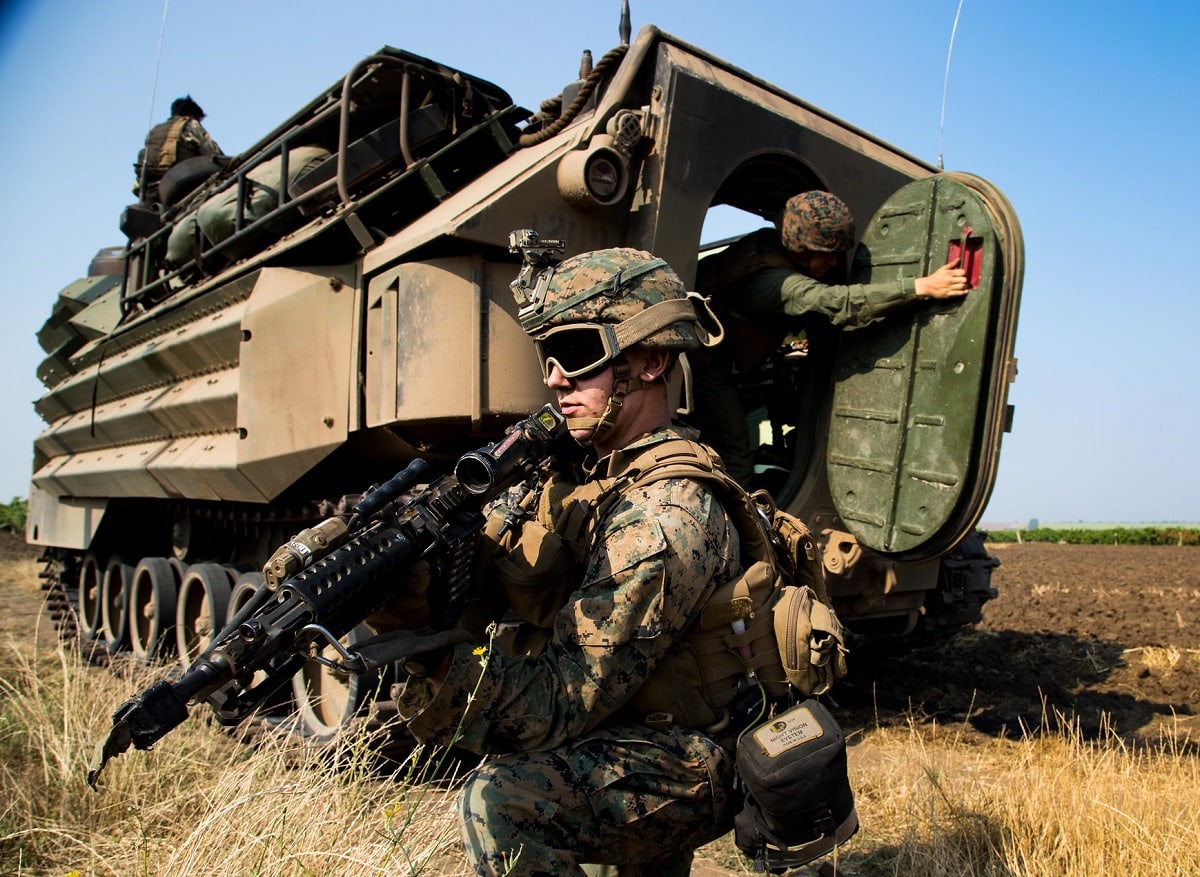For 7 years now, a low-grade conflict war has been grinding on between Ukraine and Russia, claiming more than 10,000 lives, and displacing an estimated 1.5 million people. Russia, which fired the first round in 2014, has annexed Crimea and has control over most of the Donbas, Ukraine’s most eastern province.
While this is ostensibly a conflict between Russia and Ukraine, America has taken sides. The United States has provided an assortment of military equipment to Ukraine, including armed patrol boats and Javelin anti-tank missiles. Outside of military aid, the United States has issued sanctions as well as offering strong verbal support. US President Joe Biden, whose administration claims to have “ironclad” support for Ukraine, hosted its president in early September, noting that the “U.S. remains firm in its commitment to Ukraine’s sovereignty and territorial integrity in the face of Russian aggression and — and our support for Ukraine’s Euro-Atlantic aspirations.”
Multiple talks have attempted to quell the conflict, the latest taking place on December 7, when President Biden and Russian President Vladamir Putin participated in a telephone conference call. This latest meeting was prompted by Russia’s military activity in the region. In November, Politico published satellite images of Russia massing military equipment and personnel near the northern Ukrainian border. On December 3, the Washington Post reported that U.S. intelligence had determined that Russia was planning a possible invasion which could include a “100 battalion tactical groups with an estimated 175,000 personnel, along with armor, artillery and equipment.”
This new uptick in Russian military activity is about one of two things. Moscow could have very well grown tired of the status quo and is therefore in preparation for a full invasion of Ukraine.
Or Putin could just be building leverage in hopes of getting America to back away and for Ukraine to finally accept that it will never fully leave Russia’s orbit.
In either scenario, Moscow has made it clear that losing Ukraine is not an option. This leaves America with a choice, of either continuing support for Ukrainian sovereignty, including its freedom to follow its preferred orientation towards the west, or to patch things up with Russia. But under no circumstance will Russia allow it to have both.
America defends Ukraine because it is part of its broader mission to defend the rules-based order. What Russia has done in eastern and southern Ukraine is illegal and violates the rules that have given structure to state relations for the past 7 decades. Ukraine, it is argued, is on the front line of Russian attempts to revise this order. If America does not push back against this behavior, who will?
But such an argument is both false and exaggerated. It is false because if there is any country that is responsible for weakening the rules-based order, it is the self-described indispensable nation. It was America that out of a sheer accumulation of power and hubris attempted to make legal preventive wars. It is also America that upended 2 regimes, both in blatant violation of international law. If the order can withstand such behavior from its hegemon, it can surely do the same for one of its regional powers.
These arguments also overstate how important defending Ukraine is for maintaining order. Russia is at best a disruptive power. It is not a revolutionary one, using Crimea as the first domino in a future series of aggressions in pursuit of a new world order. Ukraine shares a history with Russia that dates back at least 800 years, to the kingdom of Kiev Rus. It’s cultural and social bonds are so tight that for most of its history, the Ukrainians were often referred to as “little Russians.” Putin is not entirely wrong when he claims Ukrainian and Russian people are “one people-a single whole.”
So, while Russia’s aggressive behavior should rightly cause alarm in western capitals, they should be aware that the situation in Ukraine is unique, and that there is no other country which is capable of eliciting such risky behavior from Moscow.
There are also strategic reasons why Moscow cares so much about Ukraine. Crimea offers Russia access to the Black Sea, giving it leverage in the Mediterranean. And Ukraine itself is situated on Russia’s border, a location that causes Putin to worry if it were further integrated with the west.
It is Ukraine’s strategic and cultural importance which is why Putin will never relinquish his demands over Ukraine. It is completely unacceptable to him that Russia would ever lose influence there. Even if America were to successfully offer NATO membership to Ukraine, Russia would never concede, but instead, pick fights with America on both Ukraine as well as other issues.
This leaves America with a choice. Should it continue to support Ukraine and therefore also sour relations with Moscow? Or should it try to accept the situation there for what it is, concede that Russia has special privileges in the region, and try to rehabilitate its relations with Moscow? This would mean issuing legal assurances that Ukraine would not be offered NATO membership. It would also mean acknowledging Russian control of Crimea as well as the Donbas region. The plus side is that America could get its relationship with Russia back on track towards something cooperative. There exists a long list of mutual interests that the two countries need to make progress on, including cyber security, the rise of China, and arms control. But in order to address any of these matters, America must first be realistic about Ukraine.
Brian Clark is a foreign policy analyst with a research interest in American grand strategy. His work has been published in The National Interest and The American Conservative.

